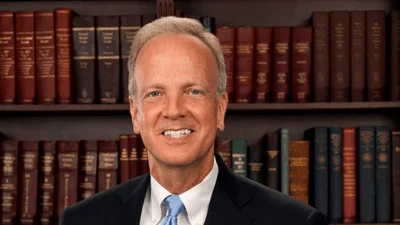Chairman Mike Gallagher, who leads the Select Committee on the Chinese Communist Party (CCP), outlined a series of measures to help reduce CCP aggression within American higher education institutions during his address at the Annual Meeting of the Association of American Universities.
"For decades, the Chinese Communist Party has exploited the very openness at the heart of American society, and our higher education system in particular, twisting this strength to the Party’s own advantage," said Gallagher, according to a press release from the Select Committee on the CCP.
Rep. Mike Gallagher spoke to 70 university presidents about protecting American universities from CCP influence. During his speech, he outlined three steps that universities should take, which include to: "prohibit the operation of any student group that receives funding or direction from adversarial governments like China’s", "rethink how they collaborate with CCP and PLA-affiliated researchers" and to "restrict outbound capital investment into China and be transparent about their foreign investments."
Gallagher highlighted the concerns surrounding CCP influence in American universities, including the role of Confucius Institutes and Chinese Students and Scholars Associations (CSSAs). These organizations are affiliated with the CCP and have raised concerns about their potential suppression of free speech and influence on campus climates. As of 2021, there were 150 CSSA chapters across the United States, including at institutions like Georgetown and the University of Tennessee, according to a press release from the Select Committee on the CCP.
Reports indicate that numerous universities in the United States have established ties with the CCP. In July, Gallagher and North Carolina Rep. Virginia Foxx sent a joint letter expressing concerns about research security to the President of the University of California Berkeley. The lawmakers were particularly concerned about the potential access the CCP may have to research through Berkeley's Tsinghua-Berkeley Shenzhen Institute. They also highlighted Berkeley's failure to disclose funding of $240 million from the city of Shenzhen and Tsinghua University, according to a press release from the Select Committee on the CCP.
"The CCP’s goal is to leverage technological advances, spread its coercive influence, and enmesh dependencies to strengthen its international position while eroding ours...," said Gallagher, according to a press release from the Select Committee on the CCP. "The question — as I see it — is how do we respond in a way that preserves our free and open society—including our higher education system with all its natural strengths—while maintaining our moral, intellectual, and financial integrity?"









